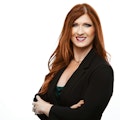The importance of hearing health for dentists, teams, and patients
There are pervasive misconceptions about hearing health and loss that may be impacting people of all ages. You might wonder what exactly this has to do with dentistry. I spoke with Becky Lansen, SVP, GM–Specialty, at Synchrony, to help us understand how the findings in the 2024 Hearing Health and Loss Prevention Study, conducted by Synchrony on behalf of CareCredit, are relevant to dentists and their teams.
Dr. Pamela Maragliano-Muniz: Hi Becky, thanks so much for taking the time to chat with me today!
Becky Lansen: The pleasure is all mine.
PMM: Please tell me more about the research, the 2024 Hearing Health and Loss Prevention Study that Synchrony conducted on behalf of CareCredit.
BL: For the research, we interviewed consumers ages 18 to 55, younger than your “typical” hearing aid patients, and also practicing audiologists. The aim was to identify what information is getting lost in translation regarding hearing health and loss and how to effectively raise awareness.
PMM: You feel that this information is particularly relevant to dentists?
BL: Yes, absolutely! Synchrony and CareCredit deeply care about all the industries, patients, and professionals that we serve. As you know, dentistry is ranked among the highest occupations at risk of hearing loss. So, when our findings came out, it felt important to share them with those in dentistry to help them be aware of the potential for hearing loss, especially dentists and hygienists, and why they may want to make hearing health a priority.
PMM: That makes a lot of sense. Perhaps our readers have noticed the hearing evaluation vans that have been at major meetings and conventions. Based on the survey findings report, what do you believe is one of the most harmful and prominent misconceptions regarding hearing loss?
BL: Consumers mistakenly believe that hearing loss is an issue that only those in later stages of adulthood must be concerned with. That is frankly untrue. The survey shows that 40% of young adults under the age of 30 have already experienced some level of hearing loss. In fact, 62% of Gen Zers have experienced a symptom of hearing loss in the past six months.
PMM: Wow! Why do you think young people are experiencing hearing loss on a larger scale than before?
BL: There are many potential factors, but one of them is that Gen Z spends more than double the average time wearing headphones. Audiologists report that 50% of the young adults they see already have impaired hearing. That suggests to us that hearing loss is becoming a more prevalent issue for young people, and we need to figure out how to educate them on their options for recognizing, diagnosing, and treating conditions related to their hearing.
PMM: What about older consumers—are they taking adequate measures to prevent hearing loss?
BL: Across the board, 70% of consumers might consider their hearing a priority, but only 10% have visited an audiologist or other hearing professional in the last year. This is concerning, given that on average, patients experience hearing loss symptoms for two and a half years before consulting an audiologist. It’s vital to find ways to decrease the time it takes for someone to take their hearing health seriously. It’s also why we here at Synchrony want to encourage people most at risk for hearing loss, such as those who work in dentistry, to take proactive steps in maintaining their ear health through prevention.
PMM: What are some examples of proactive steps that dentists and their teams can take to mitigate the risk of hearing loss?
BL: First, get a hearing test. This gives a baseline for the ear health of dentists and dental hygienists and is vital information to have when monitoring potential hearing loss. Our research found that consumers rank hearing checks far lower in importance compared to eye exams, dental checkups, and visits with a primary care provider. In many cases, hearing loss for dentists happens gradually. That’s why it’s important for dentists to go for hearing checkups in the same way one goes for dental or eye exams. Second, have hearing protection, such as earplugs, for dentists, dental assistants, and even patients, especially while using the dental drill or other noisy equipment.
PMM: Why do you think there’s a lack of urgency among consumers regarding their ear health?
BL: I think consumers just aren’t aware of just how much their ear health affects their overall well-being. Hearing loss is associated with dementia, which has harmful effects on one’s mental, social, and physical health. According to our research, 71% of consumers are unaware of the connection between hearing loss and the development of dementia.
PMM: How might dentists go about getting their hearing tested?
BL: Dentists can get hearing tests online, which is a great place to start. If they need to find an audiologist, CareCredit has a plethora of talented doctors enrolled in our network. It only takes a few minutes to find a provider using the online CareCredit acceptance locator. We found that 86% of people who have hearing devices wish they had gotten them sooner, so it’s never too early to take your hearing health seriously. Dentists’ hearing health is very important, as is the hearing of dental assistants and dental hygienists, and early intervention is critical, just like it is in dental disease.
PMM: Those who work in dentistry know better than anyone what it’s like to have a busy schedule. But one’s health, including hearing health, should be treated as a priority.
BL: Exactly! Synchrony and CareCredit want to help you be the best version of yourself, so you can keep doing what you love. That’s why we feel it’s so important to share our findings with you. Because it’s important that health-care professionals do not forget to look out for their own health as well as that of their colleagues and patients.
PMM: I couldn’t agree with you more. Becky, I’m so thankful you were able to speak with me today and share all this valuable information. I’ve learned so much, and I’m sure our readers have too!
Editor's note: This article appeared in the November/December 2024 print edition of Dental Economics magazine. Dentists in North America are eligible for a complimentary print subscription. Sign up here.
About the Author

Becky Lansen, SVP, GM
Becky Lansen, SVP, GM–Specialty at Synchrony (SYF), is responsible for the strategic vision and growth for SYF’s hearing, vision, and cosmetic markets. Becky held various commercial roles in SYF, including SVP, GM for the Venmo credit card, where she was responsible for the launch and development of the card, and SVP of Strategic Initiatives for PayPal, where she created and oversaw growth strategies across various products. She led strategic planning during SYF’s IPO and led the team that built a new online banking system after SYF’s acquisition of MetLife Bank.
Pamela Maragliano, DMD
Chief Editor of Dental Economics
Pamela Maragliano, DMD, is the chief editor of Dental Economics. Based in Salem, Massachusetts, Dr. Maragliano began her clinical career as a dental hygienist. She went on to attend Tufts University School of Dental Medicine, where she earned her doctorate in dental medicine. She then attended the University of California, Los Angeles, School of Dental Medicine, where she became board-certified in prosthodontics. Dr. Maragliano owns a private practice, Salem Dental Arts, and lectures on a variety of clinical topics. You may contact her at [email protected].


